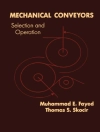- Considers the role of fertiliser use in agriculture as a major contributor to the imbalance of the global nitrogen cycle
- Reviews the effectiveness of inorganic nitrogen fertilisers and organic sources of nitrogen in optimising nitrogen use efficiency
- Highlights recent developments in the use of enhanced efficiency nitrogen fertilisers to reduce nitrous oxide emissions
สารบัญ
Part 1 Understanding nitrogen cycling in crop production
- 1.Advances in understanding nitrogen cycling in soil: Samantha Earl-Goulet, Claudia Wagner-Riddle and Laura Van Eerd, University of Guelph, Canada; and Kate Congreves, University of Saskatchewan, Canada
- 2.The role of ammonium transport proteins in improving nitrogen use efficiency in crop production: Muhammad K. Uddin, Francine Perrine-Walker and Brent N. Kaiser, University of Sydney, Australia
- 3.Molecular interventions for improving crop nitrogen use efficiency: trends, opportunities and challenges in rice: Dinesh Kumar Jaiswal and Nandula Raghuram, Centre for Sustainable Nitrogen and Nutrient Management, University School of Biotechnology, Guru Gobind Singh Indraprastha University, India
- 4.Improving the effective use of nitrogen on major field crops across the globe: a new paradigm: Ignacio A. Ciampitti, Kansas State University, USA; and Gilles Lemaire, Honorary Director of Research – INRAE-Lusignan, France
Part 2 Monitoring and optimising nitrogen use
- 5.Developments in proximal sensors to detect crop nitrogen status: Brenda S. Tubana and Daniel Forestieri, Louisiana State University, USA
- 6.Synchronizing nitrogen fertilizer application to crop nitrogen needs: Bijay-Singh, Punjab Agricultural University, India; R. J. Buresh, Independent Researcher, Mankato, USA; and S. Peng, Huazhong Agricultural University, China
- 7.Developments in the use of enhanced efficiency nitrogen fertilizers: Shu Kee Lam, Baobao Pan, Xia Liang, Arvin R. Mosier and Deli Chen, The University of Melbourne, Australia
- 8.Banding nitrogen fertilisers and the implications for enhanced efficiency fertiliser technology: Chelsea K. Janke, The University of Queensland, Australia; Cristina Martinez, The University of Queensland, Australia and The Grains Research and Development Corporation, Australia; Yash Dang and Michael J. Bell, The University of Queensland, Australia
- 9.Dynamic models for addressing complexities of nitrogen management in maize production: Harold M. van Es and Jeff Melkonian, Cornell University, USA; and Rebecca Marjerison, Yara North America, USA
- 10.The economics of nitrogen in farming systems and beyond: David J. Pannell and Asjad Sheikh, University of Western Australia, Australia
Part 3 Organic sources of nitrogen
- 11.Optimizing livestock manure as a source of nitrogen and other nutrients: Samantha Glaze-Corcoran and Masoud Hashemi, University of Massachusetts Amherst, USA
- 12.Characterizing soil nitrogen availability to improve nitrogen fertilizer recommendations: Alan J. Franzluebbers, USDA – Agricultural Research Service, USA
- 13.Service crops as a source of nitrogen in temperate Europe: Iris Vogeler, Aarhus University, Denmark and Christian-Albrechts University, Germany; Peter Sørensen and Ingrid K. Thomsen, Aarhus University, Denmark; and Friedhelm Taube, Christian-Albrechts University, Germany
- 14.The role of crop rotations in optimizing nitrogen use efficiency in organic farming: Lucie Chmelíková and Kurt-Jürgen Hülsbergen, Technical University of Munich, Germany; and Sebastian Wolfrum, Technical University of Munich, Germany, and Bavarian State Research Center for Agriculture, Germany
เกี่ยวกับผู้แต่ง
David Pannell is Professor of Agricultural and Resource Economics, University of Western Australia; Director, Co-Centre for Environmental Economics and Policy; ARC Federation Fellow (2007-2012); Distinguished Fellow and past president of the Australian Agricultural and Resource Economics Society; Fellow of the Academy of Social Sciences in Australia; and a Director of Natural Decisions Pty Ltd. His research includes the economics of land, water and nature conservation; environmental policy; farmer adoption of conservation practices; risk; and economics of farming systems. David has won awards for his research in the USA, Australia, Canada and the UK, including the 2009 Eureka Prize for Interdisciplinary Research.












